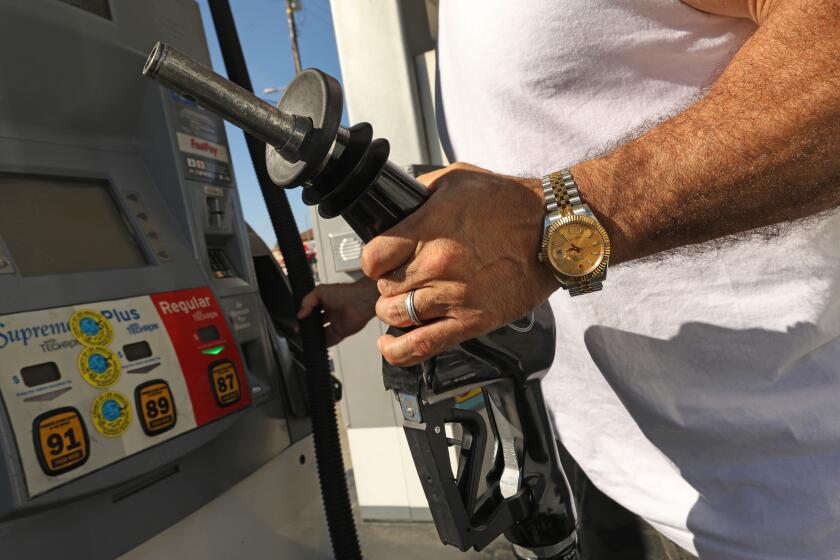Cap on Russian oil prices begins, in pressure campaign on Moscow over Ukraine

- Share via
KYIV, Ukraine — Western countries Monday began imposing a $60-per-barrel price cap and ban on some types of Russian oil, part of new measures aimed at stepping up pressure on Moscow over its war on Ukraine.
The European Union, Australia, Britain, Canada, Japan and the United States agreed to the price cap Friday. The move has prompted a rebuff from the Kremlin and also criticism from Ukrainian President Volodymyr Zelensky, whose government wants the cap to be lower by half.
The 27-nation EU also imposed an embargo on Russian oil shipped by sea.
Questions have arisen about how the Western measures would affect market prices. On Monday, U.S. benchmark crude traded up 90 cents to $80.88.
Many other factors, including strict COVID measures that have crimped China’s manufacturing, are also having an effect on demand for crude and therefore on oil prices. They are far down from a peak earlier during the war.
Russian Deputy Prime Minister Alexander Novak, who is in charge of energy issues, warned in televised comments Sunday that Russia would not sell its oil to countries that would try to use the cap.
OPEC did not change its targets for shipping oil amid Russian sanctions that could take significant amounts of oil off the market.
“We will sell oil and oil products only to the countries that will work with us on market terms, even if we have to reduce output to some extent,” Novak said in televised remarks hours before the price cap came into effect.
The Ukrainian government demanded a lower price cap, at $30 per barrel, insisting that at the $60 level Russia would still reap annual oil revenues of $100 billion, money that could be used to finance its war machine.
Russia, the world’s No. 2 oil producer, relies on the sale of oil and gas to underpin its economy, which has already come under sweeping international sanctions over President Vladimir Putin’s war in Ukraine.
In recent weeks, Russia has been pounding Ukrainian infrastructure, including power plants, with military strikes and keeping an offensive going in the east, notably in and around the town of Bakhmut.
At Gov. Gavin Newsom’s urging, California lawmakers are expected to begin a special session Monday to consider a penalty on oil profits in response to high gas prices.
Russian forces have also been digging in near the southern city of Kherson, which was recaptured by Ukrainian forces last month after an eight-month occupation.
The war that began with Russia’s invasion Feb. 24 has displaced millions from their homes, killed and injured an untold number of civilians and shaken the world economy — particularly through the impact on the prices and availability of foodstuffs, fertilizer and fuel, which are key exports from Ukraine and Russia.
More to Read
Sign up for Essential California
The most important California stories and recommendations in your inbox every morning.
You may occasionally receive promotional content from the Los Angeles Times.












